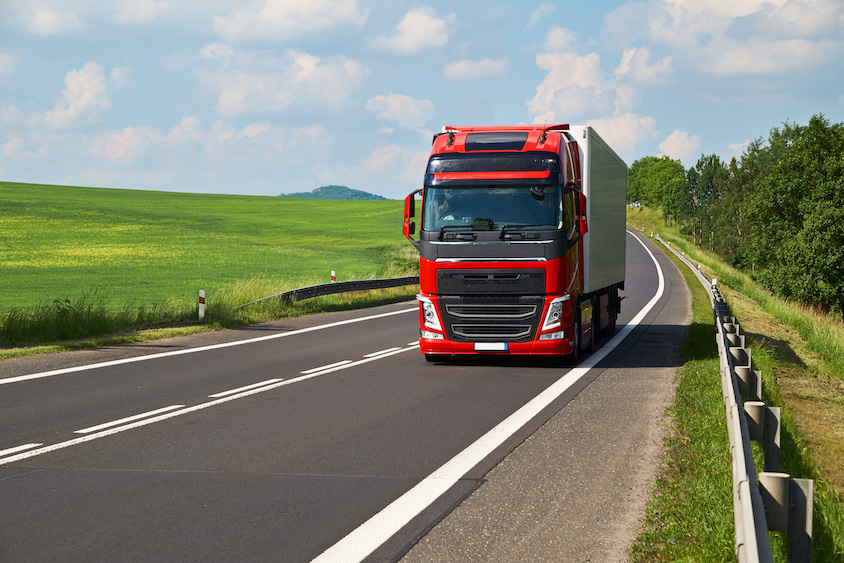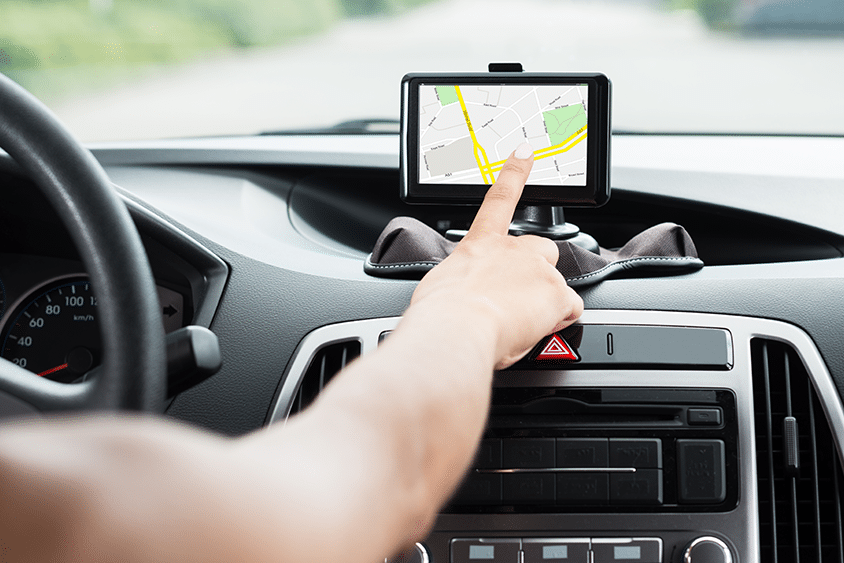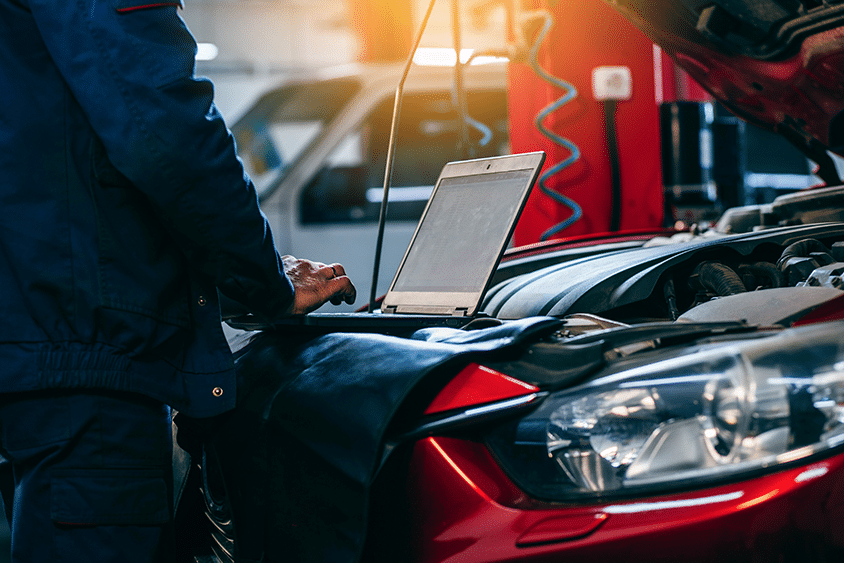DVSA Roadside Vehicle Checks For Commercial Vehicles
Written by: Marion Hanson, Last updated:4th March 2025

You may be stopped for a roadside vehicle check when driving a commercial vehicle. The police could do this or an officer of the Driving and Vehicle Standards Agency (DVSA).
You can be stopped if you are driving a commercial van, lorry, bus or coach.
What is a DVSA check?
The following checks are likely to be made:
- Is your vehicle carrying an authorised load weight?
- Are there any mechanical faults on your vehicle, such as extreme corrosion or worn out brakes?
- Do you have a valid driving license?
- Is your vehicle meeting emissions standards?
- Are your tachograph records up to date?
DVSA officers will carry out these checks by the side of the road or, in some circumstances, at dedicated testing sites.
Why are these roadside checks carried out?
These checks are carried out to determine whether the vehicle is breaking any rules or regulations. This is done to keep unsafe vehicles off the road.
While most accidents are in fact caused by driver error, ensuring that all vehicles on the road are meeting a certain standard is safer. Otherwise, the overall rate of accidents in the UK may rise further.
What happens if you fail a DVSA roadside check?
If these checks are failed, your vehicle might be immobilised, and your business could be fined and even prosecuted for operating a dangerous vehicle.
What are some myths surrounding roadside checks?
According to the DVSA, some drivers may have misconceptions about these roadside checks. Drivers may even be made to fear them unnecessarily.
Will cars also be checked?
Car drivers might be nervous to hear officers check vehicles in their area. However, they need not be.
Why do roadside checks only target commercial vehicles?
These roadside checks only target commercial vehicles. They are typically larger, and, therefore, pose a greater risk to other road users.
Commercial vehicles also tend to be on the road longer than cars. These checks also ensure that drivers take breaks and do not drive for longer than the law allows.
With a shortage of HGV drivers, businesses may encourage their drivers to stay on the road for longer to compensate for this, so these checks are now more critical than ever.
Will all commercial vehicles be pulled over?
These checks are aimed at businesses that are known to be non-compliant. Businesses that have passed checks before, or are part of the DVSA earned recognition scheme, are much less likely to be pulled over for a check.
Officers can check how compliant an operator is on their devices.
This is a great incentive to keep your vehicles in good condition, as passing these checks now will prevent you from going through them again.
Learn about the DVSA recognition scheme here.
Where does the money go from roadside fines?
If you are fined for failing these tests, you might be concerned about where that money goes.
According to the DVSA, all fines go straight to the government and are used to fund vital public services. The fines are also used to fund the DVSA’s operations.
An exception to this rule is the £80 fee that the DVSA charges to free up an immobilised vehicle once a serious defect has been amended.
What happens if you don’t stop for a roadside check?
When signalled by a DVSA officer, you must safely stop your vehicle. To ignore the signal and continue driving is, in fact, a criminal offence. If you do not stop, your vehicle details will be recorded so that you can be chased up later. You might face court action or have your operator’s licence suspended or revoked.
Who are DVSA officers?
The DVSA officers wear a recognisable hi-vis jacket, and their vehicles are marked with a black and yellow print. Officers will also carry a warrant card so you know the check is legitimate and legal.
Why bother with these checks if most accidents are down to human error?
Only 2% of accidents on UK roads result from vehicle defects, so drivers might question whether roadside checks are necessary.
However, the DVSA argues that faulty vehicles do not cause accidents because of these checks. Annual MOTs and tests for larger vehicles, in conjunction with these roadside checks, are helping to keep our roads safer.
These checks also ensure drivers are not on the road for excessive time. This keeps drivers feeling tired and unable to concentrate correctly off the road.
Will your business be massively fined for any vehicle defect?
The fine that your business might receive for running an unsafe vehicle will be proportionate to the severity of the defect.
For example, heavily eroded brakes are a reasonably hefty fine. On the other hand, if the fault is minor, you might not be fined, but an advisory notice will be issued that encourages you to get the fault fixed.
Drivers walk-around checks
Businesses might argue that they were unaware of the fault, but this is uncommon. 85% of defects can be spotted during the driver’s walk-around check, which they should carry out before each journey.
What are driver walk-around checks?
Driver walk-around checks for commercial vehicles are essential pre-trip inspections to ensure the vehicle is safe and in proper working order.
These checks cover critical areas, including tyres, lights, mirrors, brakes, and fluid levels such as oil, coolant, and brake fluid. Drivers inspect the suspension and steering systems, verify the battery and electrical components, and ensure the cargo is loaded correctly and secured. They also check for leaks or damage to the vehicle’s exhaust system, body, and frame. Additionally, drivers ensure emergency equipment like fire extinguishers and first aid kits are onboard and verify that the windshield wipers and washer system are functioning.
These checks help prevent safety hazards, ensure compliance with regulations, reduce the risk of breakdowns, and maintain overall vehicle reliability. Properly logging the inspection findings is essential for documentation and regulatory purposes.
Find out more about HGV daily walkaround checks.
How can Fuel Card Services help?
As you, ensure your commercial vehicles and drivers are prepared to pass a roadside vehicle check. Ensure that your vehicles are in prime condition and that your drivers do their best to maintain their health.
With MyService.Expert, we make vehicle maintenance quick, easy, and painless. We offer pre-negotiated rates at thousands of dealers and garages with consolidated HMRC-compliant invoices.
Get in touch today and see how we can help your businesses save time and money.
back



